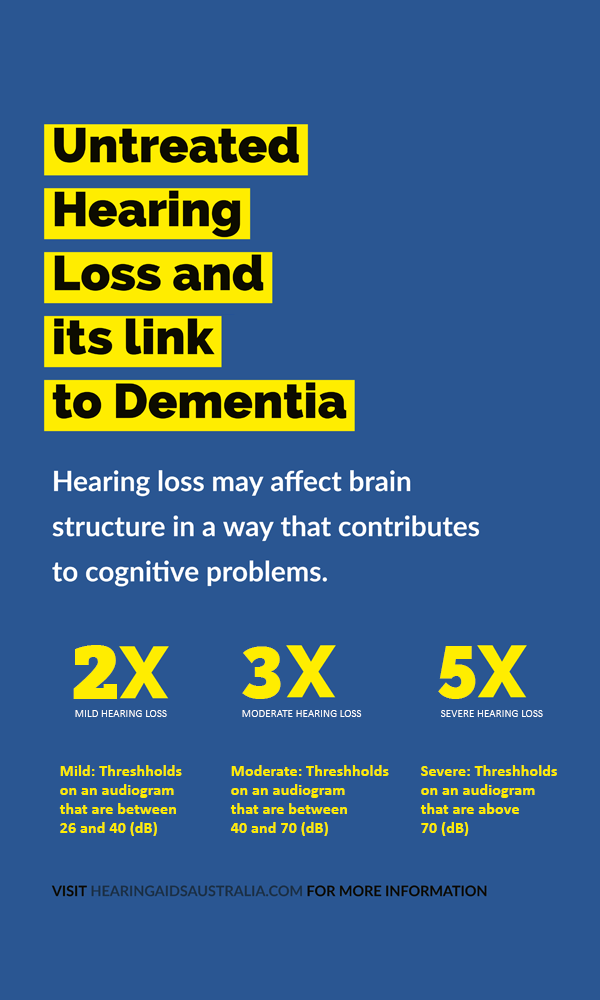
- Dec 30, 2020
ACHIEVE TRIAL
Ageing and Cognitive Health Evaluation in Elders (ACHIEVE)
A three year ACHIEVE study began as a randomized controlled trial in January 2018 within the Atherosclerosis Risk in Communities (ARIC) study at Johns Hopkins Bloomberg School of Public Health, USA.
The disease/condition being studied is "Ageing Cognitive Decline" using the treatment of "successful ageing education and other hearing interventions".
The 977 participants enrolled in the study consisting of "70-84 year-old cognitively normal older adults with hearing loss will be randomized 1:1 to the hearing intervention (hearing needs assessment, fitting of hearing devices, education/counselling) or successful ageing interventions (individual sessions with a health educator covering healthy ageing topics)."
Post the baseline study, participants are being followed twice annually for 3 years. Outcomes will include assessments of -:
- cognition
- social functioning
- physical functioning
- quality of life
Successful Ageing Intervention
Individual sessions on healthy ageing topics are being conducted as part of the ACHIEVE study.
"The Successful Ageing" intervention follows the protocols and materials developed for the 10 Keys™ to Healthy Ageing program by the Center for Ageing and Population Health Prevention Research Center at the University of Pittsburgh.
This interactive, dynamic program informs older adults about risk factors for diseases. Participants meet individually with a health educator certified to administer the program every 2-3 weeks for a total of 4 visits over 8-10 weeks, and each session the content focuses on a "Key". Each session also includes a 5-10 minute active upper body extremity stretching program as used in the Lifestyle Interventions and Independence for Elders (LIFE) study.
Participants return for booster sessions semi-annually beginning at 6 months post-randomization.

Hearing Intervention
Best practices hearing rehabilitative treatment is also an arm of the Achieve study.
The hearing intervention consists of fitting participants with hearing aids and other hearing assistive technologies plus four 1-hour comprehensive, individualized hearing rehabilitation sessions spaced over the 2-3 months post-randomization, designed to provide all of the active components of the intervention.
Hearing aids are instructed to be worn on a daily basis for the study duration. Audiologic outcomes (e.g., hearing aid data logging, real ear measures, speech in noise, etc.) to verify the best-practices hearing intervention are gathered during study intervention visits and semi-annually beginning at 6 months post-randomization.
Audiological Care - Best Practice
Nicholas Reed, AuD, assistant professor in the Departments of Epidemiology at the Johns Hopkins University Bloomberg School of Public Health and Otolaryngology, has worked in the ACHIEVE study exploring the causal effect that may exist between hearing loss and dementia.
Reed discusses the importance of best practice audiological care, especially as it relates to the oncoming over-the-counter (OTC) hearing aid era.
"The largest attributable risk to dementia is hearing loss and that makes it the largest modifiable risk factor of any other risk factors.
If you eliminated all hearing loss in the world, you would eliminate 8% of dementia in the world.
We know what hearing loss does. And we have a biologically plausible mechanism for how that would cause cognitive decline and whether it's cognitive load, whether it's brain structural changes from adding a signal to the brain and then atrophy without a signal, or whether it's social isolation, we have pathways that make sense.
So it's a Cox proportional hazards model. You can interpret it as sort of like odds. And it's basically, people with mild hearing loss have two times the odds of developing dementia compared to those without hearing loss, those with moderate loss, three times the odds, and those with severe loss, five times the odds."
If you see a study that says, "... people with mild hearing loss have two times the risk of developing dementia." It does not mean one-to-one that when you go to your doctor, your doctor can say, "You have mild hearing loss? You have two times the risk of developing dementia." It doesn't work that way. You really cannot take a population level statistic and then apply it to an individual. The individual is much more complicated and complex. And there are factors that are not the same in the population level model and the individual... So for the individual, you would have to take all the coefficients from that model and then start adding them and figuring out how much this person's risk is.
So... the ACHIEVE Trial is actually looking, in a clinical trial setting, to [determine] whether or not hearing aids delay cognitive decline.
The ACHIEVE trial takes adults with mild and moderate hearing loss who are 70 years and older and randomizes them to best practice hearing aids or... a healthy ageing equivalent. And we look at them over a three year period and from this we may derive if, "good care is clinically proven to produce better outcomes."
Hearing Aid TrackerSocial Isolation
The idea that 'hearing loss causes dementia’ is a commonly used scare tactic to pressure hearing loss sufferers into the purchase of hearing aids; however, it is more so that hearing loss causes changes in your ability to communicate and socialise. You tend to be more isolated when you have a hearing loss and this can cause your brain to atrophy a little quicker or allow dementia and cognitive decline to take hold a little bit faster.
If hearing loss causes a change in communication and you no longer communicate with people, you may start to socially isolate. Social isolation is highly associated with dementia and that's the causal pathway. The theory is that if you use a hearing aid and you get back some of that communication, then you start going out again and engaging socially.
And when you see that sort of sales tactic of "protect yourself from dementia, get a hearing aid", it's sort of not true. There's no science yet to really back that up. And in the grand scheme of things, I don't think it's what any science will actually suggest. I think it's more of "get a hearing aid and get all the best practices that go along with it and... get that counselling, get that whole... holistic approach to hearing-based communication... how can we address hearing loss to improve your overall quality of life?" And that's a bigger question..
Dr Nicholas Reed – John Hopkins UniversityWhen you are fitted with hearing aids they should ideally be programmed based on your individual hearing loss. An audiologist will assess your hearing loss and apply a correction factor. But it’s not just increasing volume. Real-ear measures allow an audiologist, or a hearing care provider, to measure the resonance inside your ear canals, as well as the natural acoustics of your ear and program the devices more appropriately for you. These are important elements in best practice by making sure that a hearing device is programmed properly for you and optimised for your individual needs.
Reed maintains that we will soon have an over-the-counter (OTC) class of devices designed for mild and moderate hearing loss that are very accessible. And it will give a new entry point into the hearing care market that might encourage those with a hearing loss to begin the use of hearing aids earlier than they otherwise would.
Reed suggests, "If you're 60 and you develop hearing loss, and you sort of think about getting a hearing aid, but you're like, ah I have this very, very mild hearing loss", the lower price and improving efficacy of OTC hearing aids, might encourage the use of hearing aids earlier in the process of hearing loss.
This is particularly relevant to Australian men who will take on average, between 7 and 10 years to act upon their hearing loss.
from Hearing Aids Australia
However, if you purchase an OTC 'hearing aid' (most only provide amplification at the moment), you may simply turn up the volume or if available, the bass sounds, because you think that sounds okay to you when what you really need is clarity..
In the USA, regulations are currently being drafted to outlaw the marketing of cheap and ineffective OTC hearing device products, some of them claiming you will 'hear 50 times better'. from Over-the-Counter hearing aids
Real-ear measures should be assessed by an audiologist and the hearing device selected and programmed by them in consultation with you, specifically for your individual needs. This is vital for a best practice approach, especially when there's a hearing loss that is substantially affected in the high frequencies versus the low frequencies which is the situation with the majority of age-related hearing loss.
The Power of Hearing
Everyone has different reasons for putting off seeking help for hearing loss, from price issues and vanity concerns to preconceived and often outdated ideas of how hearing aids perform.
Today's hearing aids - like all high-tech devices - have come a long way in terms of looks and performance. And independent research shows that hearing aid usage has a positive effect on:
- Earning power
- Communication in relationships
- Intimacy and warmth in family relationships
- Ease in communication
- Emotional stability
- Sense of control over life events
- Perception of mental functioning
- Physical health
The first step is making an appointment to be examined by an audiologist, who will identify the extent and type of your hearing problem. The assessment is conducted by a skilled clinician and takes about 30 minutes.
Audiologists are health-care professionals who evaluate, diagnose, treat and manage hearing loss, tinnitus and balance disorders in newborns, children and adults. An audiologist is a clinician who has completed an undergraduate university degree and a two-year master's degree in audiology.
from Auditory Deprivation & Brain Deterioration
Regarding the theory that 'hearing loss causes dementia', Reed insists;
...correlation is not causation. And I think people say that to sound smart, but to be honest... if you really are following the literature and have a strong grasp of the framework and the epi[demiology], I think that phrase doesn't really make sense anymore. And at its core we can hit the basics, right? There's biologic plausibility, right? We know what hearing loss does. And we have a biologically plausible mechanism for how that would cause cognitive decline and whether it's cognitive load, whether it's brain structural changes from adding a signal to the brain and then atrophy without a signal, or whether it's social isolation, we have pathways that make sense.
Dr Nicholas Reed – John Hopkins UniversityThe ACHIEVE trial takes a holistic approach to ageing, hearing loss and cognitive decline through its program that encourages participants to stay physically active, quit smoking and properly manage nutrition, diabetes and through the use of hearing devices.
The ACHIEVE study is due to be completed in October 2022 when the data will have been collated, analysed, and the outcomes and reports made public. The results will hopefully assist us in answering the questions and hypotheses posed by previous studies regarding 'hearing loss and dementia’ and the efficacy of hearing aids in combating cognitive decline.
Moreover, we look forward to the ACHIEVE trial further illuminating the best health, communication and lifestyle choices and providing practical pathways to assist us in the slowing of cognitive decline that is caused and/or exacerbated by the processes of ageing and hearing loss.
Researched, Compiled, Composed, Edited and Written by Dr Steve Gration – Dec. 2020
References and Further Reading
https://clinicaltrials.gov/ct2/show/NCT03243422
https://www.hearingtracker.com/news/hearing-loss-and-dementia-are-they-connected
https://www.hearingtracker.com/podcast/dementia-and-hearing-loss-with-dr-nicholas-reed-at-johns-hopkins
https://www.hearingaidsaustralia.com
https://www.hearingaidsaustralia.com/Hearing-Aids/news/NewsArticle.jsp?News_ID=46
https://www.hearingaidprices.com.au/Hearing-Aids/news/NewsArticle.jsp?News_ID=26
https://www.afr.com/companies/healthcare-and-fitness/when-you-think-hearing-loss-think-brain-loss-20170911-gyf7r5
https://www.hearingaidprices.com.au/Hearing-Aids/news/NewsArticle.jsp?News_ID=24
http://www.hearingadvice.com.au/Hearing-Aids/news/NewsArticle.jsp?News_ID=9
https://www.hearingaidprices.com.au/
Browse Other Articles
The first site in Australia to list major brands of hearing aids and prices.

